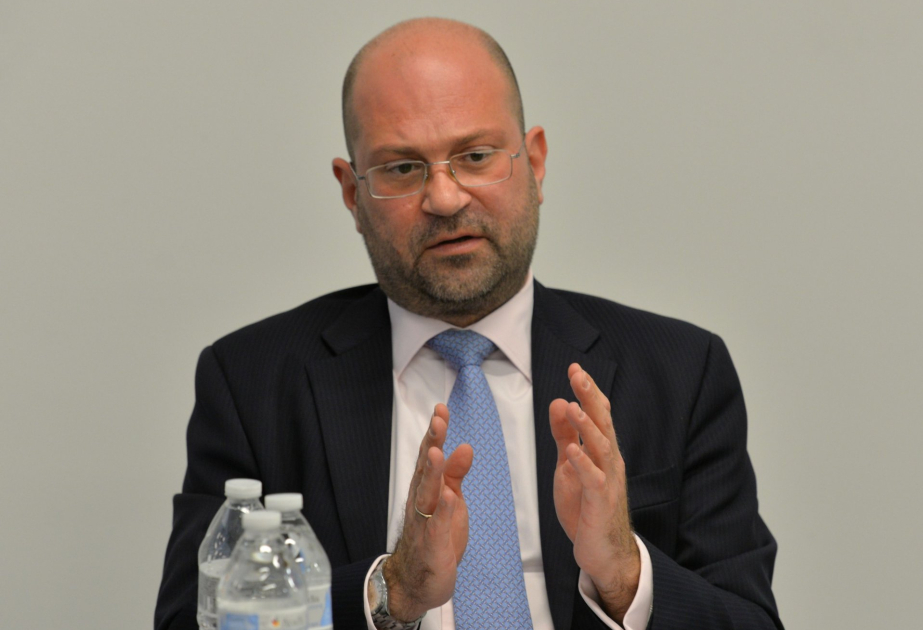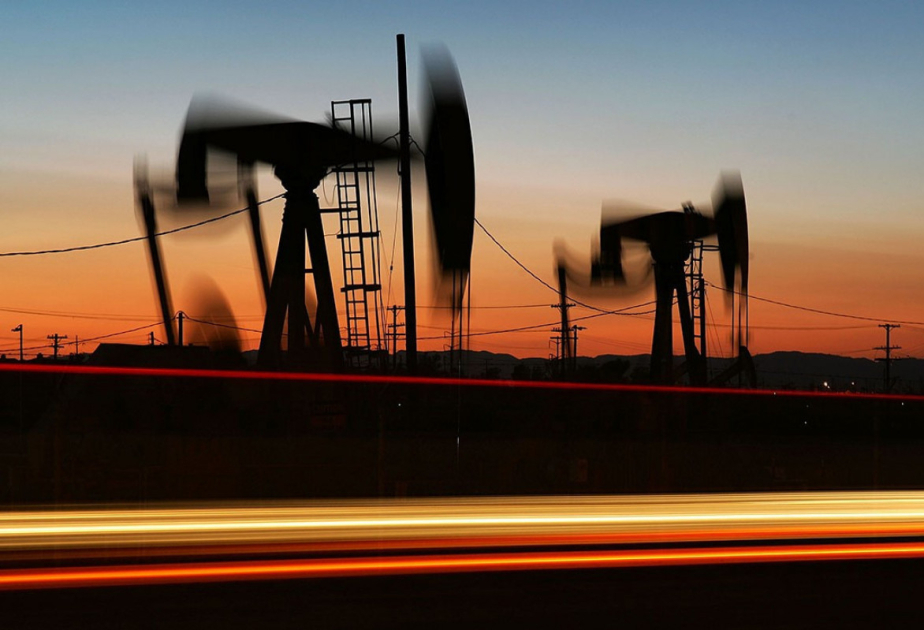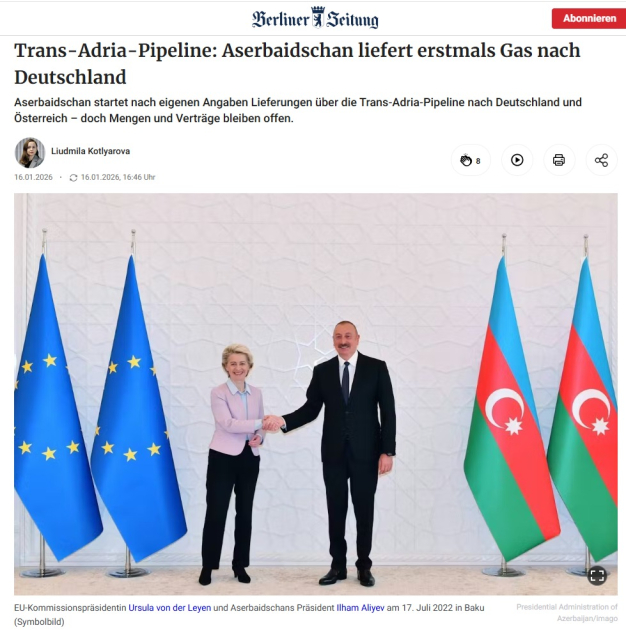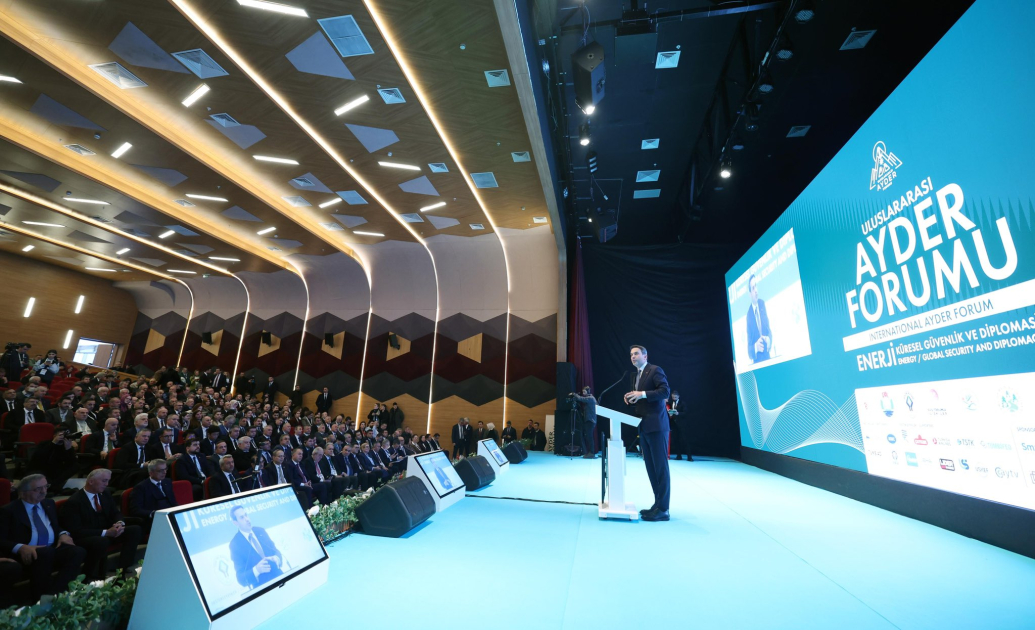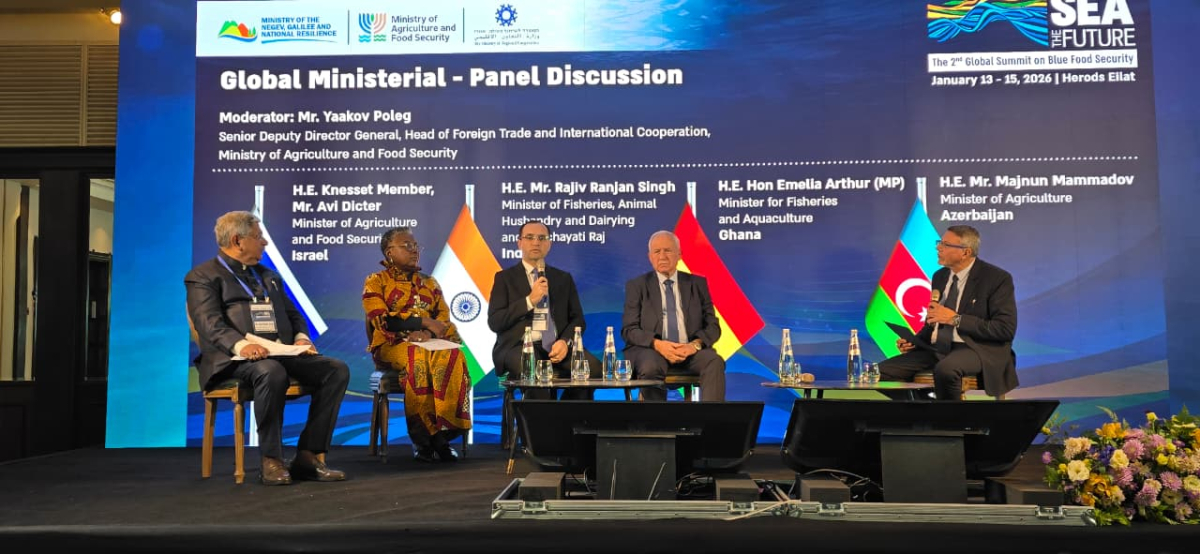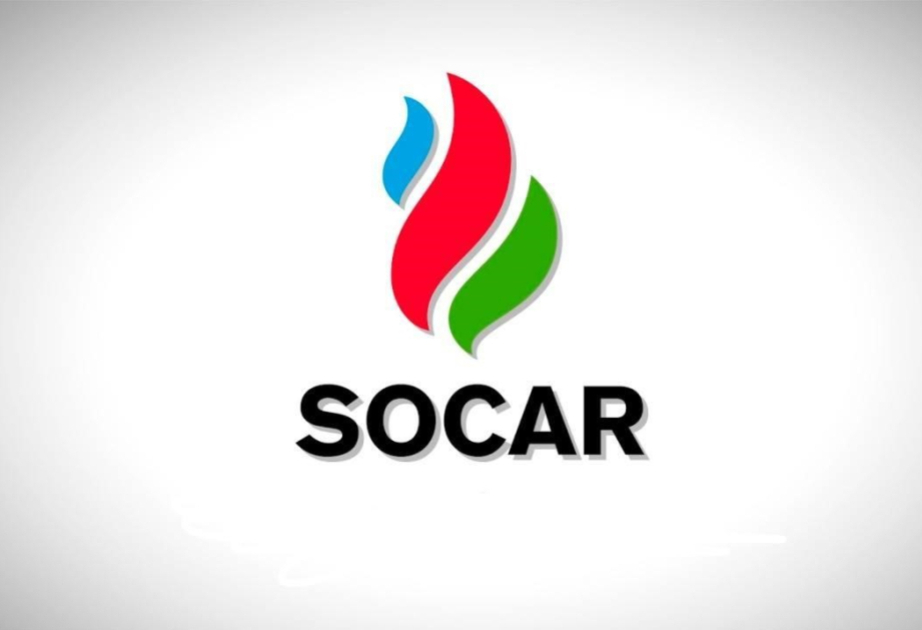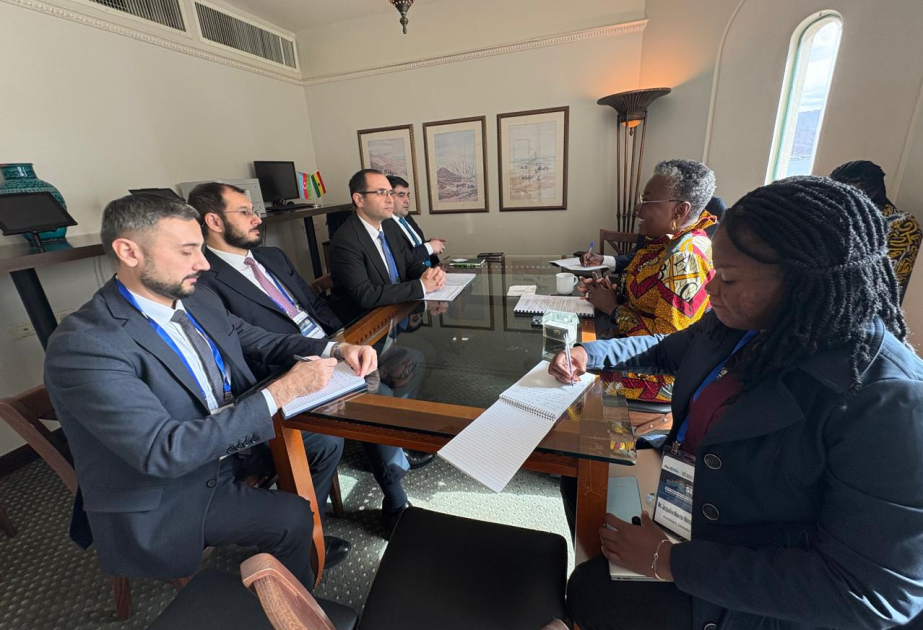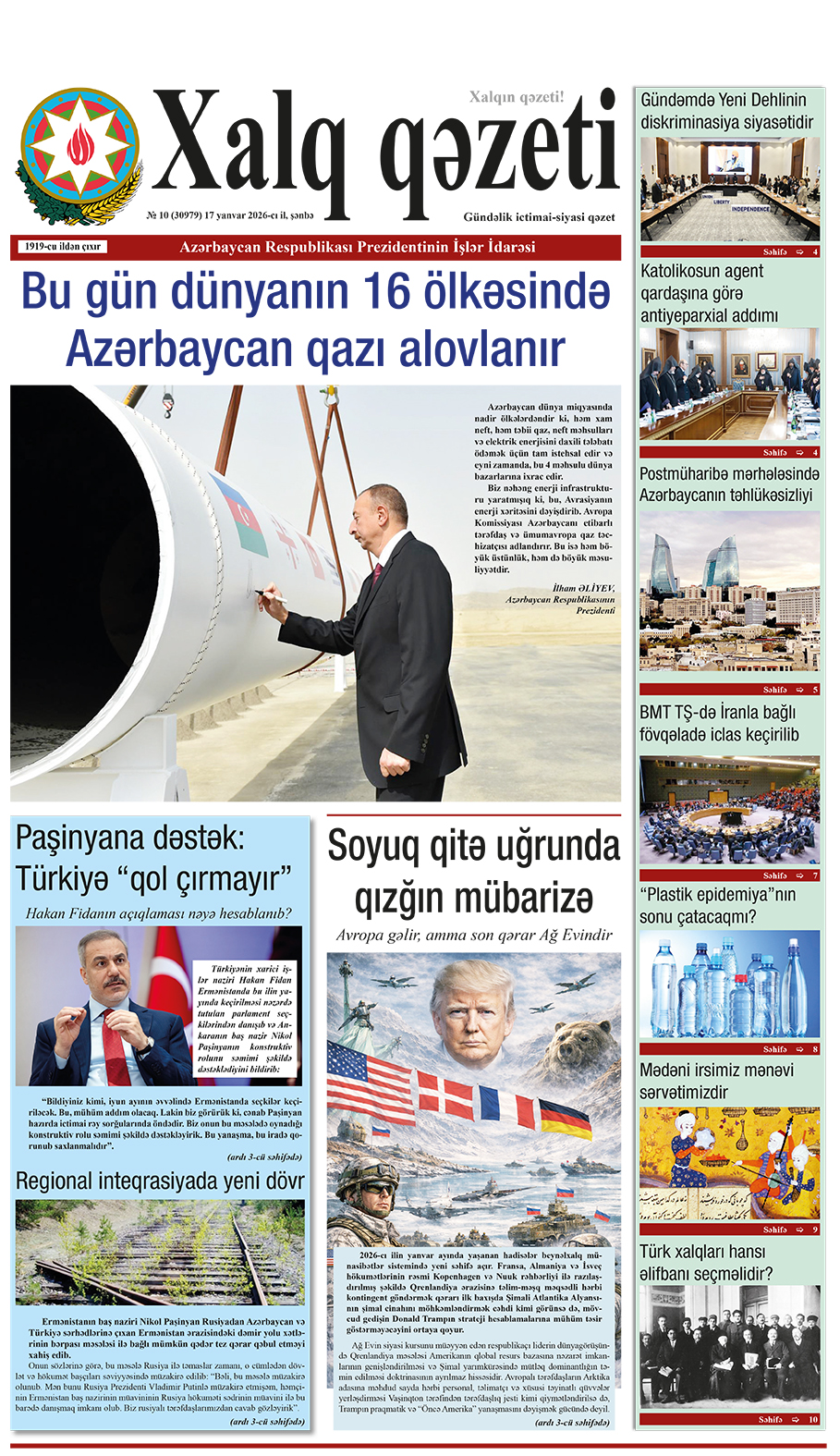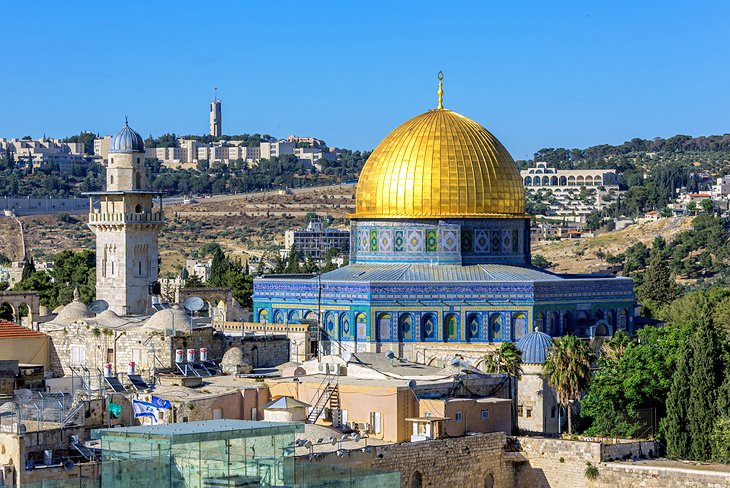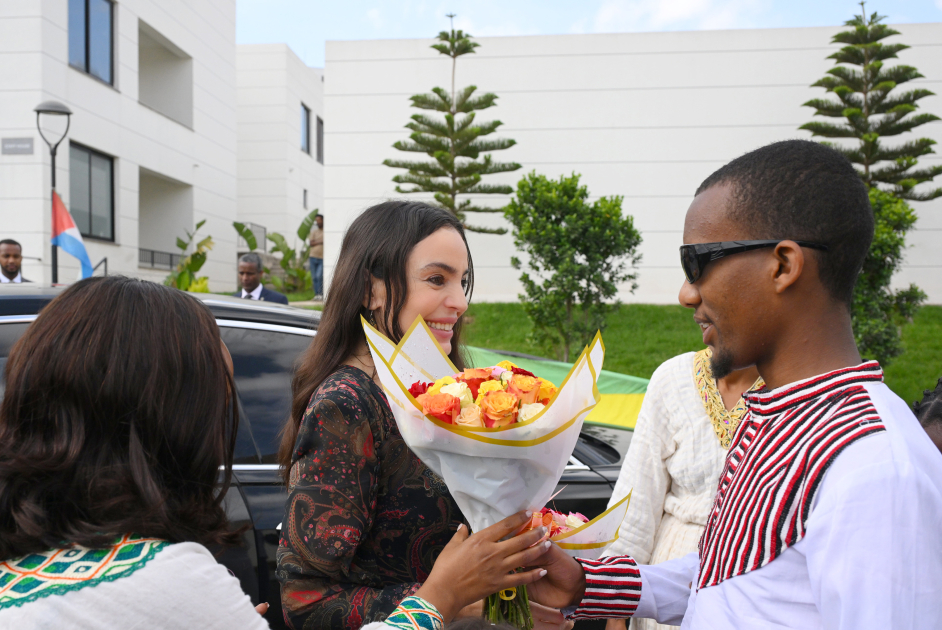AZERTAC presents an interview with Damjan Krnjević, Professor of Practice and Director for Policy Research and Analysis at the Institute for Development and Diplomacy at ADA University, former Senior Adviser to the President and Foreign Minister of Serbia (2004–2012), and former Adviser to the President of the UN General Assembly (2012–2013).
- How do you assess the strategic importance of the Middle Corridor in the current geopolitical conditions? Why do you think interest in this route has increased significantly after the start of the war in Ukraine?
- The Middle Corridor continues to grow in strategic importance for a number of reasons. Let me highlight three of these. First, because this east-west connectivity route is the fastest and least expensive one—even now, and especially once the infrastructure and customs and similar arrangements are optimized. Relatedly, the potential for adding value to goods and services along the Middle Corridor is increasingly attractive due to complications arising from the EU’s posture toward China. There is also the energy security angle: this part of the world exports increasing quantities of oil and gas to Türkiye, Europe, China, and other parts of Asia.
The second reason is geopolitical. The conflict over Ukraine and the instability resulting from the conflict between America, Israel, and Iran, means that the Middle Corridor is the only unsanctioned and safe east-west land connectivity route. The northern one, which goes through Russia, is sanctioned by our Western friends—and this is unlikely to change for quite some time. The southern route, which traverses Iran, a country also under Western sanctions, is also one that will likely remain out of commission for quite some time. Also, do not forget that the alternative sea routes have several choke points whose reliability is under the shadow of constant military or political complications. The Malacca Strait, the Strait of Hormuz, the Bab-el-Madeb Strait into the Red Sea, and the Suez Canal are the most obvious ones.
As a result of all this geopolitical uncertainty and locomotion, all the major economic powers and blocs are looking for a diversity of routes. Safety and security are as important considerations as distance and cost. On all these, the Middle Corridor is superior. This does not mean that the Middle Corridor will become the central east-west connectivity artery, but it will, I think, increasingly draw a larger percentage of trade and other forms of commercial activity from other routes—both sea and land routes.
The third reason for the increasing strategic importance of the Middle Corridor is the countries of the region itself—what I call the Silk Road region, others call the Trans-Caspian region, and some Westerners and Russians still call Eurasia, or core Eurasia.
The countries of the Silk Road region are driving a significant increase in intra-regional trade. Last week, my Institute for Development and Diplomacy at ADA University published a report, together with the Astana International Financial Centre, which I co-wrote, that is titled “Enhancing Economic Cooperation between Kazakhstan and Azerbaijan: Building on an Anchor Partnership in the Silk Road Region.” This paper focused on only one aspect of that critical issue. Lying behind this is a strategic decision by all the countries belonging to the Silk Road region—starting with its three “keystone states” or “centripetal powers,” Azerbaijan, Kazakhstan, and Uzbekistan—to enhance all-around cooperation. This effort is being led by the leaders of these three countries, Presidents Aliyev, Mirziyoyev, and Tokayev.
This strategic decision is part of a much larger story that involves those three keystone states unwilling to accept the Silk Road region remaining an object of great power rivalry. They see an opportunity, for the first time in centuries, to transform this part of the world into a subject of international order. So, outsiders are welcome to invest and so on, but not to set the agenda, not to interfere in internal affairs, and not to impose foreign rules and standards and what they call “values.”
- How do you assess China's interest in the Middle Corridor? Is it a full-fledged alternative to the routes through Russia for Beijing?
- Do not forget that President Xi Jinping announced what is now called the Belt and Road Initiative in neighboring Kazakhstan—so, in the heart of the Silk Road region. From the very onset, China saw the main land route to the west as having very much to do with the Middle Corridor. China does not seek any sort of exclusivity, and its geopolitical and geoeconomic strategy in this or any other theater is not founded on a sphere of influence approach. When it comes to connectivity, China seeks strategic diversification. It seeks alternative routes—options. That’s why the Middle Corridor will never fully replace the routes through Russia, especially since Russia is an important market for China. But for Chinese goods and services whose destination is the Silk Road region, or Türkiye, or the Western Balkans, or the European Union, the Middle Corridor will keep growing in attraction.
No serious country belonging to the Silk Road region perceived heightened Chinese interest in the Middle Corridor to have a strategic downside. Of course, there are concerns, but there are always concerns whenever any major outside power or bloc seeks to invest heavily in any country in any part of the world. Just think of the non-economic conditionalities that our Western friends bring with them—including the financial institutions under their control.
When it comes to the EU, there was this very important line in a speech made by Chinese foreign minister Wang Yi in February 2025 at the Munich Security Conference. He made a very public offer to “synergize high-quality Belt and Road cooperation with the European Union’s Global Gateway strategy.” For the countries of the Silk Road region, this would be a welcome development. Of course, it remains to be seen whether Brussels will accept the strategic opportunity that Beijing has put on the table. The EU’s vision of achieving strategic autonomy depends in part on how it responds to China.
- How important is the energy component (oil, gas, hydrogen) within this route? How do you think the importance of this route may change over the next 5-10 years?
-It is very important today and will be even more important tomorrow. I want to focus on Azerbaijan in my answer. In 2022, the President of the European Commission and the President of Azerbaijan signed a Memorandum of Understanding that effectively deepened the strategic energy partnership between Baku and Brussels. This was a political promissory note by the EU, and it has only been partially fulfilled so far.
I want to mention this document’s two most important aspects. The first is a commitment to double the capacity of the Southern Gas Corridor—the main gas pipeline originating east of the European continent that does not traverse Russian territory. The position of Azerbaijan and all its partners is that expanding this critical energy artery can happen only if consumers in the EU are willing to participate strategically in financing its expansion, and if consumers are allowed to sign long-term contracts with the producers. Today, the European Commission is blocking both of these requirements. This obviously needs to change.
The second important aspect of this document is that it opens the way for Azerbaijan to become a major producer and exporter to the EU of electricity generated by renewable sources of energy, like wind and solar. Since the document was signed, two strategic projects have started to take shape. The first is the Black Sea electricity cable mega-project, which would provide electricity from Azerbaijan and Georgia to Romania and Hungary and perhaps other EU member states. The second is the Caspian Sea electricity cable mega-project, which would feed electricity—also generated by wind and solar—from Kazakhstan and Uzbekistan into the first mega-project. This would tie the Silk Road region to Europe even further. Both of these projects could be ready in a few years.
Because the record is clear: there is no more reliable non-Western pipelined oil and gas supplier to the EU than Azerbaijan. If the capacity of the Southern Gas Corridor is doubled, then Azerbaijan will meet at least 10 percent of the EU’s gas needs. Add electricity produced from renewables, and you get an even more predictable, stable, secure, and friendly strategic energy partnership that will last for many, many decades.
It boggles the mind that the EU has not fully embraced this incredible value proposition. Especially since Azerbaijan is the gateway country to Central Asia—you can’t get there from Europe without going through Azerbaijan. With this in mind, making sure the strategic energy partnership runs smoothly and can deepen unimpeded by ideologically-driven regulations is clearly in the EU’s interest.
- How do you assess the role of Azerbaijan as a key transit state within the Middle Corridor? To what extent does Azerbaijan successfully use its geographical location between Europe and Asia to promote the Trans-Caspian route?
-Well, I just said Azerbaijan is the gateway country for the EU to Central Asia. And President Aliyev said earlier this year that it’s “impossible to imagine the transport map of Eurasia without Azerbaijan, without its transport infrastructure.” I would go even further: Azerbaijan is indispensable for advancing the strategic connectivity ambitions of the EU in Central Asia. And this formulation is also valid for any other outside power or bloc. Simply put, Azerbaijan is the indispensable state of the Middle Corridor. You can’t get around Azerbaijan—whether you start to the east or the west of the Silk Road region. That’s why the indispensability argument is equally valid not just for the EU, but for Türkiye, the Central Asian states, China, and so on.
That being said, there is another aspect to all this. The Americans have this expression: “to be ready for primetime.” Both Azerbaijan and Kazakhstan are working very rapidly to expand their port facilities. Azerbaijan and Kazakhstan and other key countries along the Middle Corridor—on either side of the Caspian—are also working very rapidly to harmonize customs procedures, expand railway networks, build better roads, and so on. The idea is to optimize the Middle Corridor in the next few years—to make it fully ready for primetime. And I have no doubt this will succeed.
I want to make two more quick points. First, the potential of the Alat Free Economic Zone, which is located right next to Port of Baku at Alat, is incredible. There is no place like it. Second, my friends Carlos Roa and Charles Yockey, together with my former student, Ibrahim Mammadov, proposed in the Spring 2025 edition of the journal I co-edit, Baku Dialogues, something that could be transformational. In their article, they argue—convincingly, in my view—that one of the most important financial anchors for the Silk Road region needs to be the establishment of a Trans-Caspian Development Bank. This is what’s missing, and their article makes a very strong case for how to get it off the ground.
-What is needed to transform Azerbaijan into a technological and innovative platform in the region, in addition to its raw material potential?
-I mentioned one already: making fuller use of the incredible strategic potential of the Alat Free Economic Zone, which requires an integrated relationship with the Port of Baku at Alat. I understand this is well on its way to happening.
When I was talking just a moment ago about the importance of establishing a Trans-Caspian Development Bank, I was really talking about better and cheaper access to capital. This is the second point. Now, access to capital can come from homegrown sources, and I understand that the Central Bank is working on this. There are regional sources, like the Astana International Financial Centre—but also, like I said, the Trans-Caspian Development Bank. This will make it even easier for the countries of the Silk Road region to invest in each other’s economies.
And, of course, there are sources beyond the Silk Road region, whether from east, south, or west. Some of the Gulf states are already seizing the opportunity. So is Türkiye. More could be done. China will almost certainly play a larger financing and investment role. And nothing prevents American and EU capital from making strategic investments except for outdated perceptions and non-economic considerations. This will need to change, or the West will miss out on one of the most important geoeconomic opportunities of the century.
The third is education. Azerbaijan needs a properly educated workforce. The good news is that everyone understands this. ADA University has taken numerous strides in this regard—not only do we already have the best IT & Engineering, Business, Law, and Agriculture & Food Science schools in the country, and we also are building the Azerbaijan-Italian University, which will contribute even more to prepare the country to face the future with in-demand skills.
But all in all, I think Azerbaijan is well on its way to transforming itself into a successful technological and innovative platform of the Silk Road region.
- What is the interest of the European Union in the development of the Middle Corridor? What steps is the EU taking to support this route? To what extent are European companies and logistics operators ready to diversify supply routes towards the Trans-Caspian direction?
-The EU says its interest is high, but its officials have not engaged in any strategic sense on the development of the Middle Corridor with Türkiye, Georgia, and Azerbaijan—three key countries on the western side of the Caspian on this issue. Certainly, the EU has not done so to the same extent as it has with the Central Asian states through their Global Gateway initiative, and investment forums, and so on.
-How do you assess the potential for expanding EU-Azerbaijan bilateral cooperation in transport, energy and digitalization? What political and economic benefits does the EU receive from closer interaction with the South Caucasus, especially with Azerbaijan, within the framework of the corridor?
-The potential is very high. I will not repeat my answer about the EU’s interest in developing the Middle Corridor. And I already mentioned what the EU needs to do in order to make strategic use of Azerbaijan’s energy export potential, which I also will not repeat.
But your question and my previous answers raise a broader issue: the EU needs to understand Azerbaijan and, more broadly, the Silk Road region as it understands itself. Brussels and the major member state capitals should not try to project their own ideologies, normative frameworks, or domestic preferences onto this part of the world. No part of the Silk Road region is Europe. Even Georgia—Georgians may consider themselves to be Europeans, but Georgia is not in Europe. It’s about 1,000 kilometers away by sea, longer by land, from the nearest EU border. And I think it is foolish to think that Georgia or Armenia will ever become fully-fledged member states of the European Union. Obviously, it is even more foolish to think in this way regarding Azerbaijan or Central Asia.
I bring this up because the EU tends to treat any sort of consultations or negotiations with neighboring states as a car inspection. This is also the case even with many other countries that are farther away. Anyway, when you take your car to be inspected, so that you can receive a piece of paper that allows you to extend the car registration, you go to the mechanic that can perform this inspection, and the mechanic has a checklist and performs a serious of tests and there is no bargaining involved. No give and take. No possibility of a counteroffer being accepted. Your car passes the inspection or doesn’t. That’s how it works. No negotiations, no compromise. Well, the EU oftentimes behaves like that.
In the past, Brussels could get away with this—in the Western Balkans, among some of the official candidate countries for EU membership, it still does. Because both parties think the EU has all the leverage. But in the Silk Road region, treating a negotiation like a car inspection will simply not work.
Again, the potential political and economic benefits for the EU in expanding cooperation with Azerbaijan and the rest of the Silk Road region are very high. In transport, energy, and digitalization and all other aspects of connectivity. But so far, the EU has been unwilling to change its mindset. Brussels thinks it has all the leverage—or most of the leverage. And that’s the main reason we continue to speak of potential.
But, you know, I don’t see how the EU can become a major geopolitical player if it doesn’t change its mindset. Look at how little influence it has today in other neighboring geographies like North Africa, the Middle East, and even in the conflict over Ukraine. Yes, it is playing a role in preventing Ukraine’s military collapse, but it has achieved nothing more than that. The EU continues to punch geopolitically far below its geoeconomic weight.
Now, look at the geo-strategic location of Azerbaijan and the Silk Road region. It stands between the world’s two most critically important regions: the Indo-Pacific and Euro-Atlantic basins. Moreover, it’s the area where the Turkic world comes into contact with all its neighbors, and where SCO and CSTO come into contact with NATO. As I’ve already mentioned, it’s where two game-changing connectivity projects—the Belt and Road Initiative and the Middle Corridor—blend into one another. And so on. So, there is no doubt that the Silk Road region is one of the world’s most strategic gateways, the key geographic connection point between different blocs of states, regional associations, and civilizational groupings.
Of course, since I’m talking about a negotiation mindset, clearly Azerbaijan and the rest of the Silk Road region will also need to make compromises. But this is a two-way street. When Brussels is ready, Astana, Baku, and Tashkent will be ready. So will the other capitals in this part of the world. Everyone who matters in this part of the world has made this very clear.
-How do you see the long-term role of Azerbaijan within the Eurasian transport and energy architecture? Can Azerbaijan become not only a transit country, but also a regional logistics and investment hub?
-Yes, I have already spoken about this. Azerbaijan has unique leverage because of its geographical location, and the geopolitical and geoeconomic implications of this. That’s what I mean by “indispensable country.” The trick will be how to negotiate this properly—how to maximize this advantage in practice, for the betterment of Azerbaijan. Now, if you look at Azerbaijan’s record—the history of the deals it has made in the past several decades—I think that we can assume that this will be done.
- What steps do you think the Middle Corridor countries, including Azerbaijan, need to take to make this route competitive, secure and sustainable?
-I have already answered this question in detail, so let me summarize my answer: the main countries belonging to Middle Corridor have to optimize all these technical matters—customs, logistics, the multimodal transfers—and build more infrastructure to accommodate much more cargo flow. This is all being done, and a lot is already in place.


